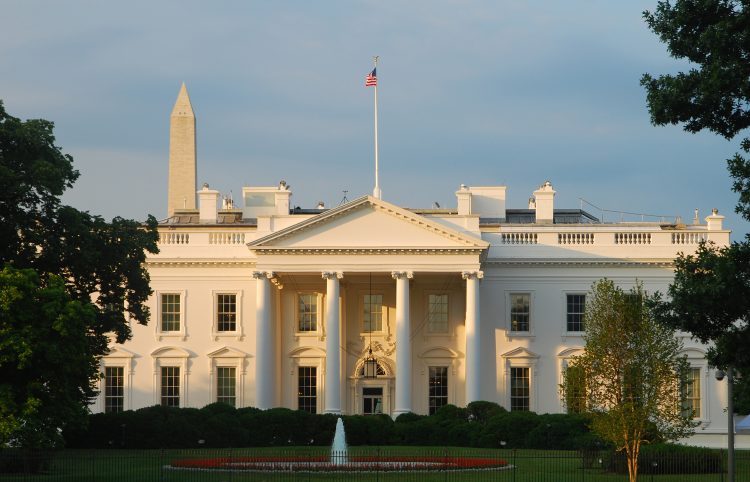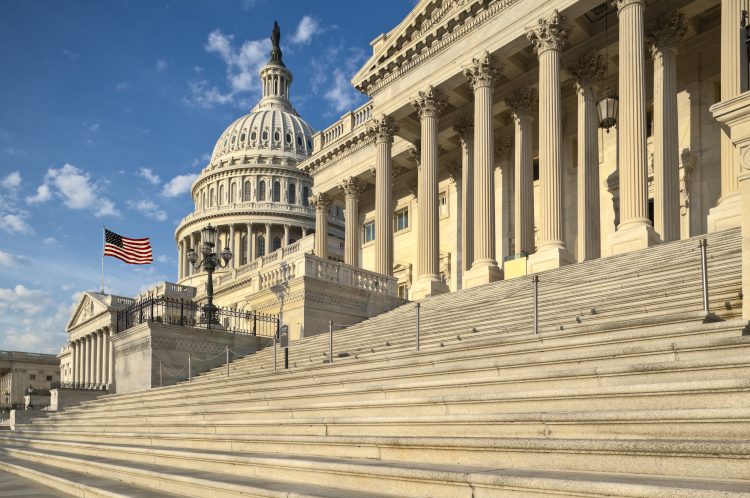This week on Facing the Future, I talked with Romina Boccia, director of budget and entitlement policy at the Cato Institute. She recently testified before the House Budget Committee at a hearing titled: “Sounding the Alarm: Pathways and Possible Solutions to the U.S. Fiscal Crisis.” We discussed that testimony and I also got her take on the budget battles that are looming this year.
One of the key points that Boccia stressed in her testimony was the sheer size of the debt held by the public. “At about $29 trillion,” Boccia said, “it’s as large as the U.S. gross domestic product (GDP) and over the next 30 years, we will potentially exceed 150 percent,170 percent or higher. Two hundred percent of GDP is possible, especially if the 2017 tax cuts are extended without additional deficit reduction. And while there are countries that have higher levels of debt to GDP than that, they’ve also suffered commensurate consequences.”
As an example, Boccia noted what has happened in Japan. “A lot of people like to point to Japan and say, ‘Oh, we’ll be fine. Japan has had 250 percent of debt to GDP ratios, and they didn’t implode.’ Yes, but they’ve also suffered decades of economic stagnation and the lack of opportunity has also contributed to a decline in the Japanese population, which is further exacerbating their fiscal challenges. And so I wouldn’t point at Japan and say, we’ll be fine. Rather. I would point at Japan and say there is a huge opportunity cost to being a country in such high debt.”
Boccia is not optimistic about the current outlook. “In the big picture,” she said, “our debt is too high. It’s crowding out investment because the government is borrowing more which is driving up interest rates, which means it’s increasing the cost of borrowing for businesses and individuals. That reduces economic activity, including innovation and investments. Businesses are less able to grow, expand, and hire new workers and make bets on potential future innovations. And so we’re going to get less of that which will drag down long term economic growth.”
“It’s also increasing the premiums that bondholders are demanding,” she continued, “especially in combination with the fact that our politicians are giving no indications that they understand the severity of our unfunded entitlement challenge and that they understand the consequences of continuing to drive up the debt and are committed to ensuring that bondholders will be paid in full instead of, at, reduced returns by inflation. As bondholders are looking at our fiscal situation and our lack of political commitment to ensuring a long-term, sustainable, fiscal future they price in higher inflation, which drives up interest rates, which again leads to that crowding out that I mentioned.”
Boccia has been a strong advocate of creating a new fiscal commission along the lines of the military base realignment and closure commission (BRAC). She suggested that President Trump’s “Department of Government Efficiency” (DOGE) would be more effective if it had been set up as a BRAC-like commission authorized by Congress.
“On spending, you need congressional buy-in,” she said. “One opportunity would have been for Congress to authorize DOGE, not as an executive office, but as a congressional commission and delegate to it some of the powers that Congress gave to BRAC. But that’s not how things went. Instead, DOGE is now in the executive branch and it has a much, much more narrow scope instead. While DOGE has been a shiny object to distract people, I think that the real executive actions are coming out of the Office of Management and Budget OMB) and we have seen a lot of activity there recently, pausing most federal government grants.”
Boccia still holds out hope, however, that a fiscal commission could be part of the solution even if it takes some time to bring people around to the idea. “Last year,” she said, “it seemed very likely, but now that prospect has withered away, so we would need to see a new effort. And perhaps, after President Trump works with Democrats to raise the debt limit, and perhaps even works with Democrats to extend and expand his tax cuts and significantly increase the debt and deficits, and perhaps, if some bond bondholders start chiming the alarm bells louder by raising U.S. interests even more, maybe there will be enough support for a coalition of members of Congress to push back on the Executive and demand more fiscal responsibility, and perhaps even authorize a commission to find the specific policy reforms that will stabilize the debt.”
Hear more on Facing the Future. Concord Coalition Executive Director Bob Bixby hosts the program each week on WKXL in Concord N.H., and it is also available via podcast. Join us as The Concord Coalition team discusses issues relating to national fiscal policy with budget experts, industry leaders, and elected officials. Past broadcasts are available here. You can subscribe to the podcast on Spotify, Pandora, iTunes, Google Podcasts, Stitcher, or with an RSS feed. Follow Facing the Future on Facebook, and watch videos from past episodes on The Concord Coalition YouTube channel.
Continue Reading











